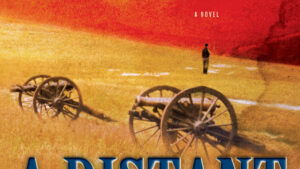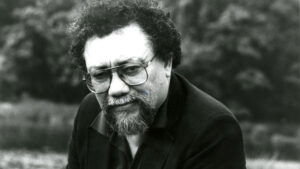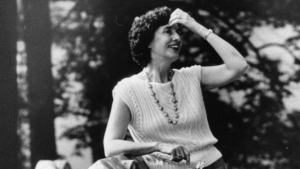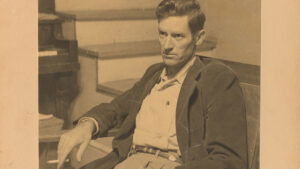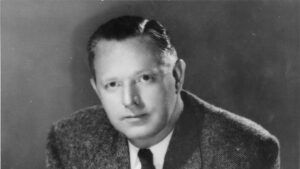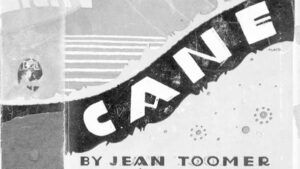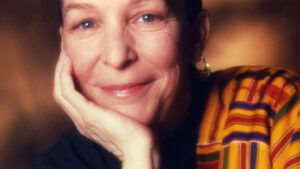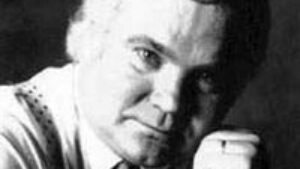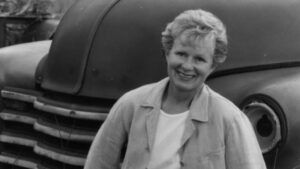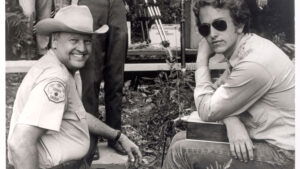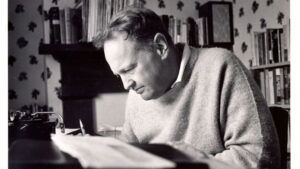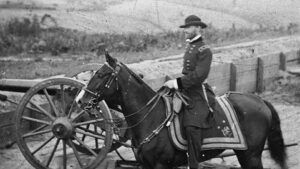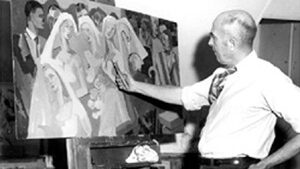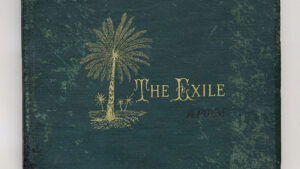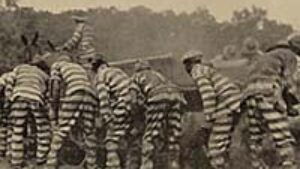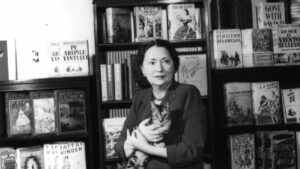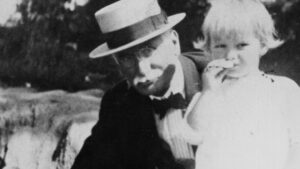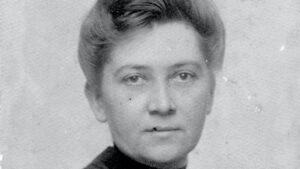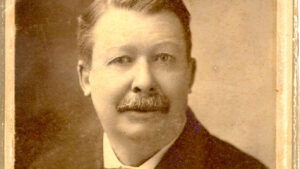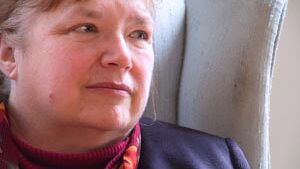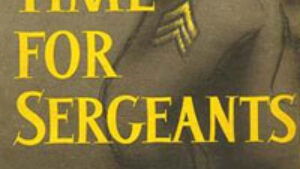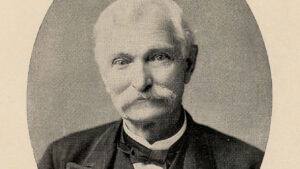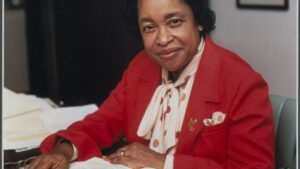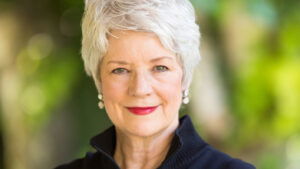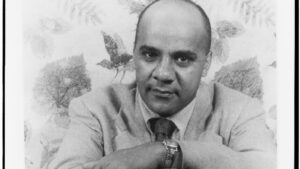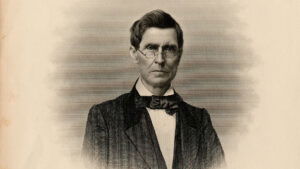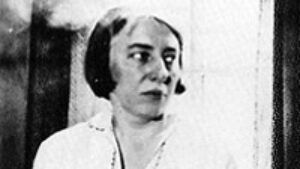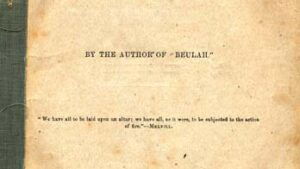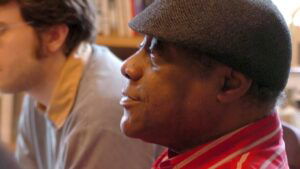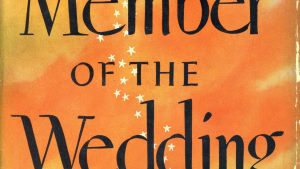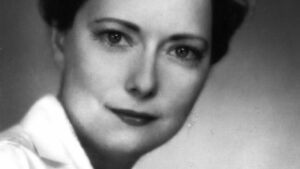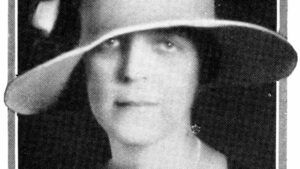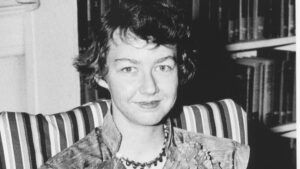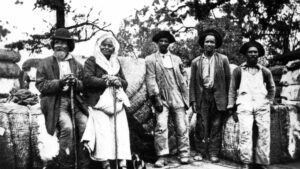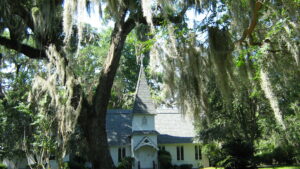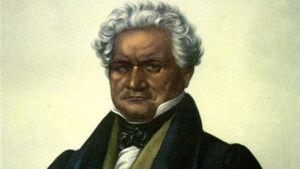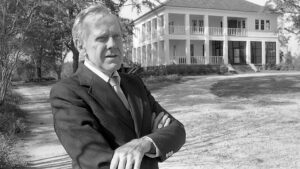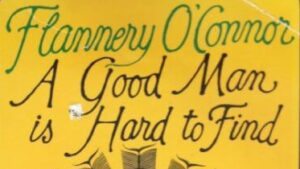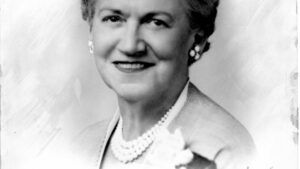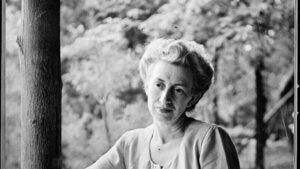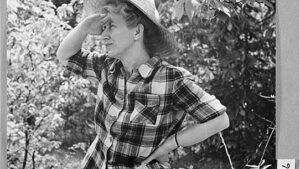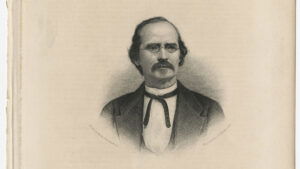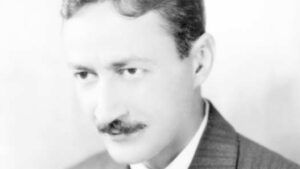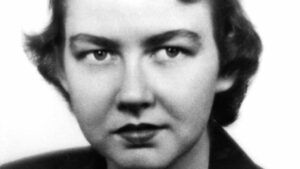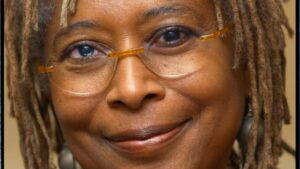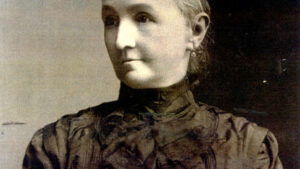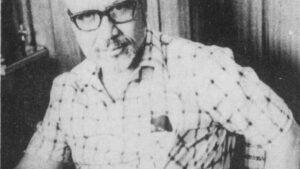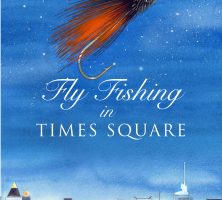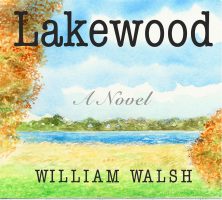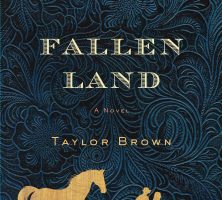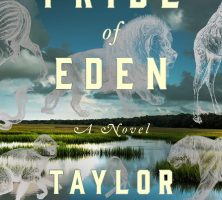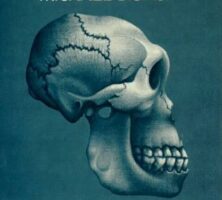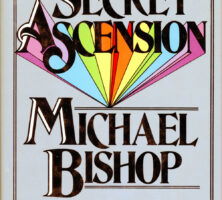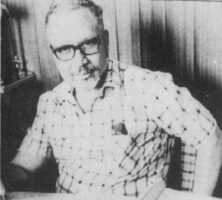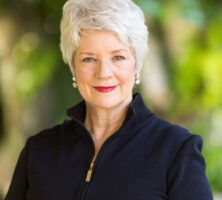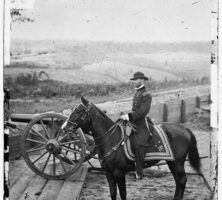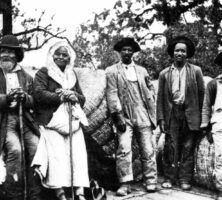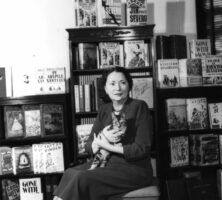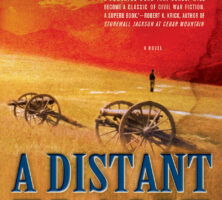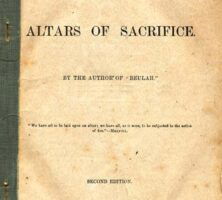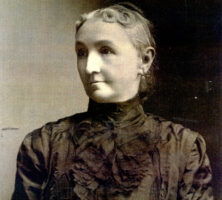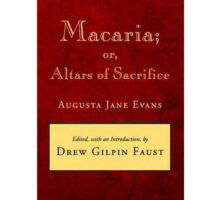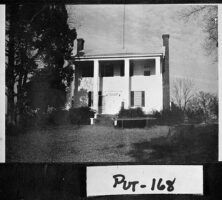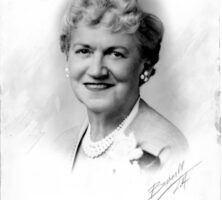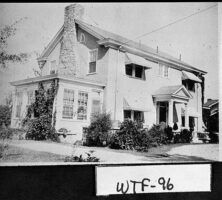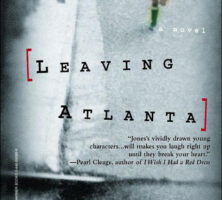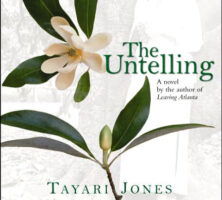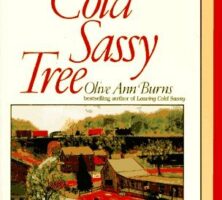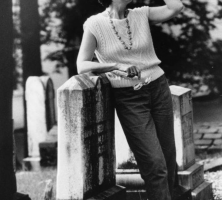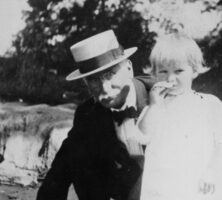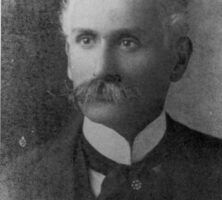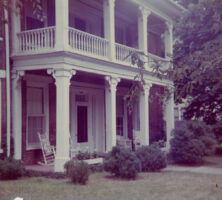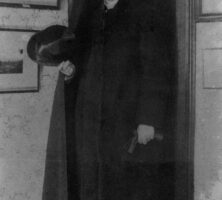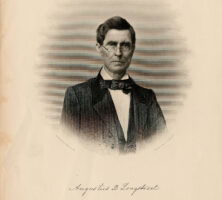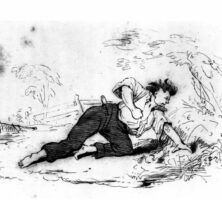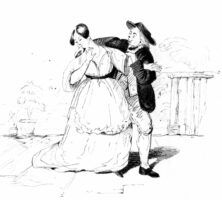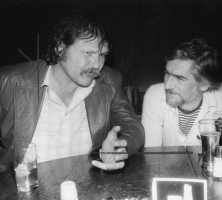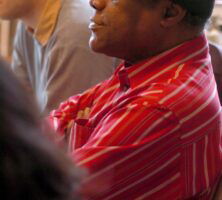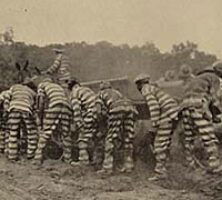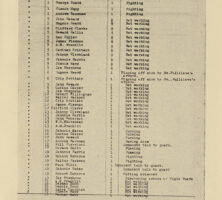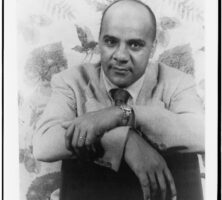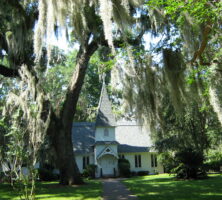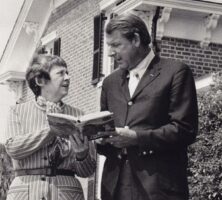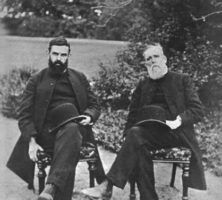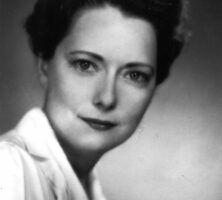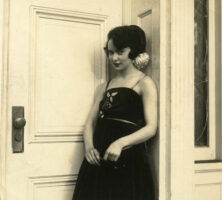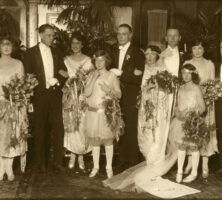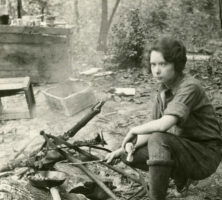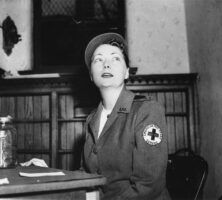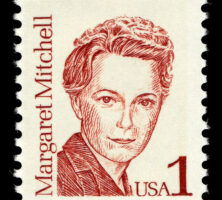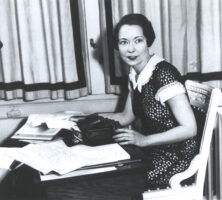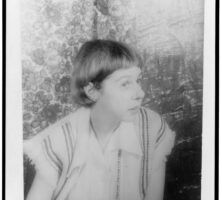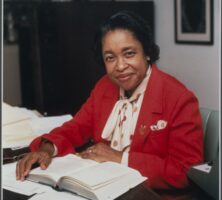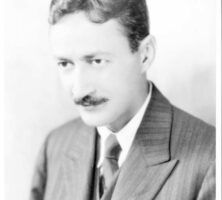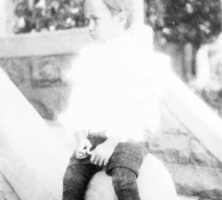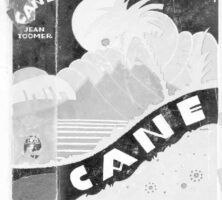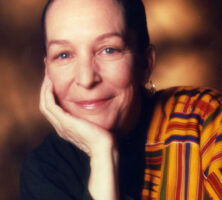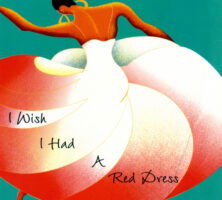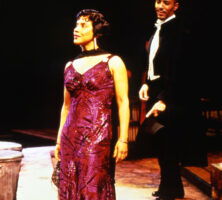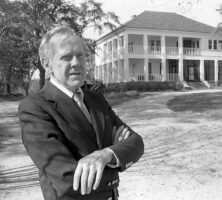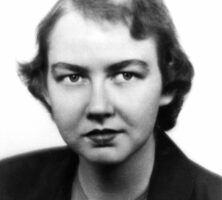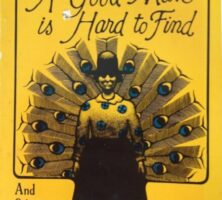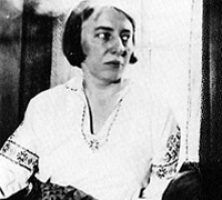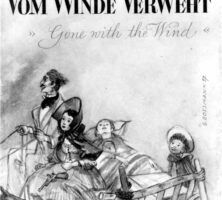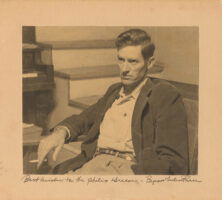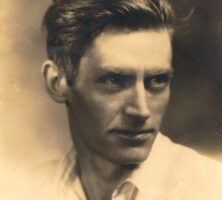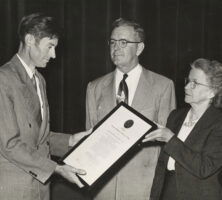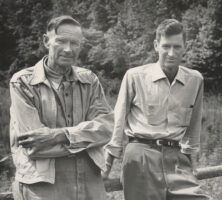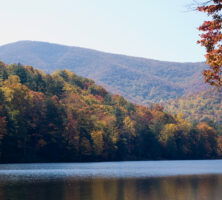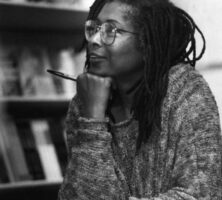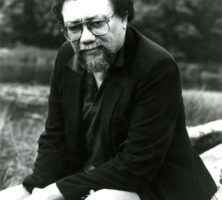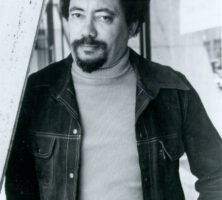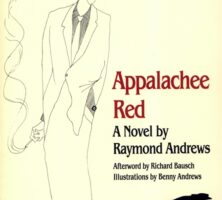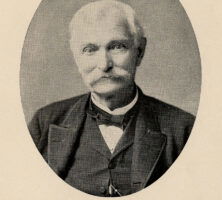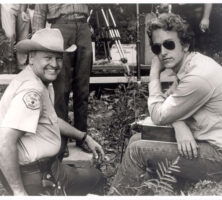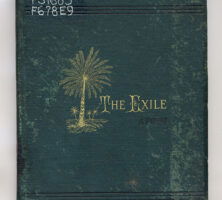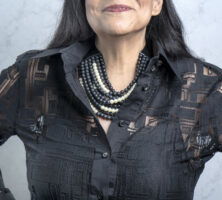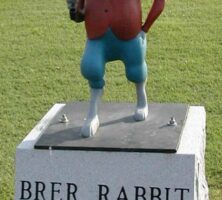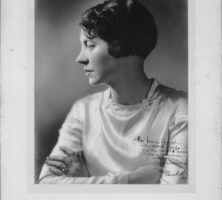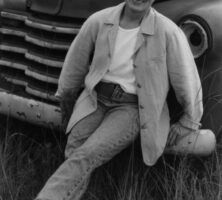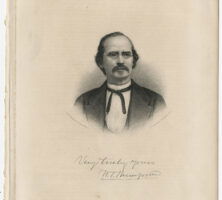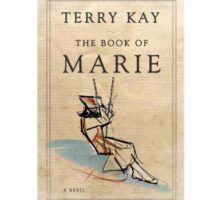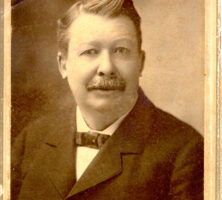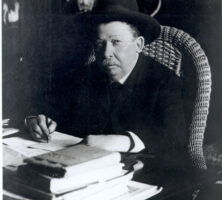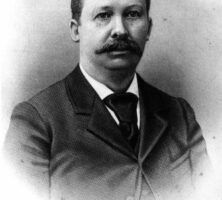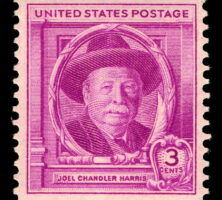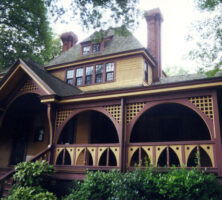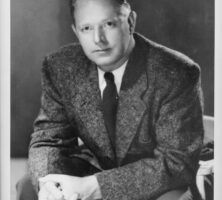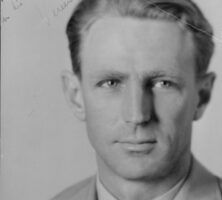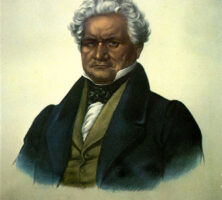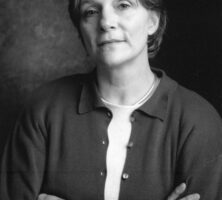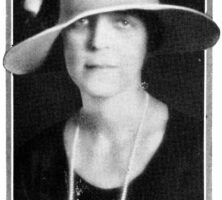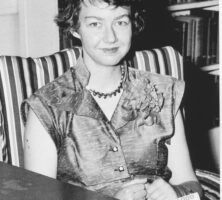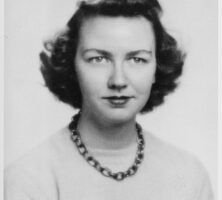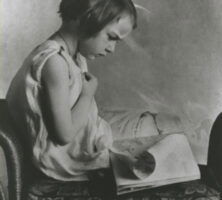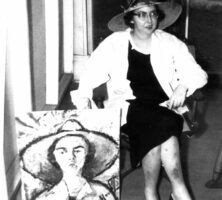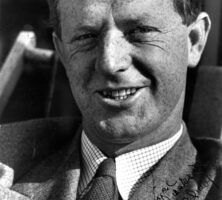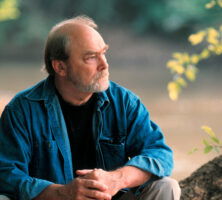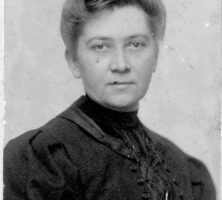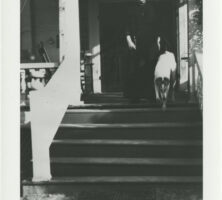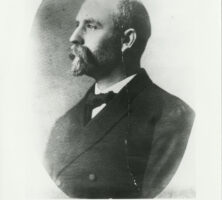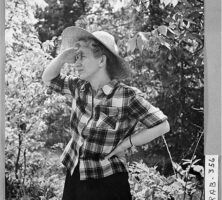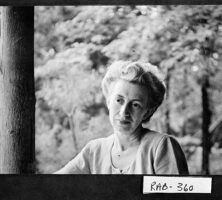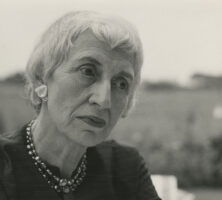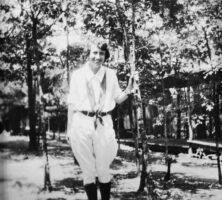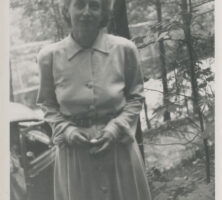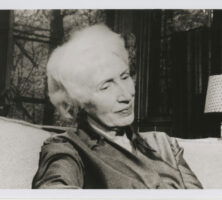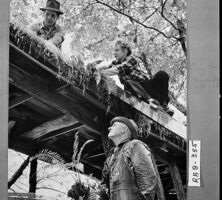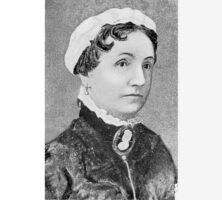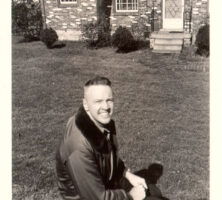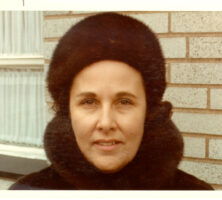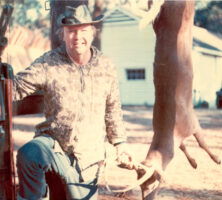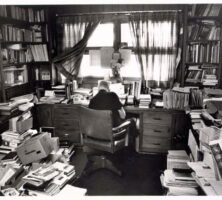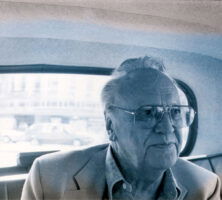The New Georgia Encyclopedia is supported by funding from A More Perfect Union, a special initiative of the National Endowment for the Humanities.
William Walsh's award-winning book of poetry, Fly Fishing in Times Square (2020), centers on themes of place and memory as the speaker seeks to reconcile their past and present.
Courtesy of William Walsh
The New Georgia Encyclopedia does not hold the copyright for this media resource and can neither grant nor deny permission to republish or reproduce the image online or in print. All requests for permission to publish or reproduce the resource must be submitted to the rights holder.
Author, professor, and editor William Walsh is known for his work as a southern narrative poet and as an interviewer of contemporary authors.
Courtesy of William Walsh
The New Georgia Encyclopedia does not hold the copyright for this media resource and can neither grant nor deny permission to republish or reproduce the image online or in print. All requests for permission to publish or reproduce the resource must be submitted to the rights holder.
William Walsh's second book, Lost in the White Ruins (2014), examines childhood, regrets of loss, and the search "to find what makes us whole."
Courtesy of William Walsh
The New Georgia Encyclopedia does not hold the copyright for this media resource and can neither grant nor deny permission to republish or reproduce the image online or in print. All requests for permission to publish or reproduce the resource must be submitted to the rights holder.
William Walsh's first novel, Lakewood, was published in 2022.
Courtesy of William Walsh
The New Georgia Encyclopedia does not hold the copyright for this media resource and can neither grant nor deny permission to republish or reproduce the image online or in print. All requests for permission to publish or reproduce the resource must be submitted to the rights holder.
Environmental concerns figure prominently in the work of Georgia author Taylor Brown.
Photograph by Benjamin Galland
The New Georgia Encyclopedia does not hold the copyright for this media resource and can neither grant nor deny permission to republish or reproduce the image online or in print. All requests for permission to publish or reproduce the resource must be submitted to the rights holder.
Taylor Brown's first novel, Fallen Land (2016), follows two youths as they travel from Virginia to the Georgia coast during the Civil War.
St. Martin's Press
The New Georgia Encyclopedia does not hold the copyright for this media resource and can neither grant nor deny permission to republish or reproduce the image online or in print. All requests for permission to publish or reproduce the resource must be submitted to the rights holder.
Taylor Brown's fourth novel, Pride of Eden (2020), takes place in an animal sanctuary on the Georgia coast and explores the plight of wild animals in the modern world.
St. Martin's Press
The New Georgia Encyclopedia does not hold the copyright for this media resource and can neither grant nor deny permission to republish or reproduce the image online or in print. All requests for permission to publish or reproduce the resource must be submitted to the rights holder.
Shay Younblood is pictured at a Yaddo artist residency in Saratoga Springs, New York. A graduate of Clark College (later Clark Atlanta University), Youngblood has received numerous honors, including a Pushcart Prize, a Lorraine Hansberry Playwriting Award, and several NAACP Theater Awards.
Courtesy of Shay Youngblood, Photograph by Carol Bullard.
The New Georgia Encyclopedia does not hold the copyright for this media resource and can neither grant nor deny permission to republish or reproduce the image online or in print. All requests for permission to publish or reproduce the resource must be submitted to the rights holder.
Shay Youngblood, from Columbus, writes novels, plays, and shorts stories that center on the lives of Black women. Her plays have been staged in theaters across the country, including numerous productions in Atlanta.
Courtesy of Shay Youngblood, Photograph by Miriam Phields.
The New Georgia Encyclopedia does not hold the copyright for this media resource and can neither grant nor deny permission to republish or reproduce the image online or in print. All requests for permission to publish or reproduce the resource must be submitted to the rights holder.
Michael Bishop was named to the Georgia Writers Hall of Fame in 2018.
The New Georgia Encyclopedia does not hold the copyright for this media resource and can neither grant nor deny permission to republish or reproduce the image online or in print. All requests for permission to publish or reproduce the resource must be submitted to the rights holder.
Like many of Bishop's works, the 1985 novel Ancient of Days is set in Georgia.
The New Georgia Encyclopedia does not hold the copyright for this media resource and can neither grant nor deny permission to republish or reproduce the image online or in print. All requests for permission to publish or reproduce the resource must be submitted to the rights holder.
The Secret Ascension: Philip K. Dick is Dead, Alas (1987) imagines a parallel universe in which President Richard Nixon, serving his fourth term, has turned the country into a totalitarian police state.
The New Georgia Encyclopedia does not hold the copyright for this media resource and can neither grant nor deny permission to republish or reproduce the image online or in print. All requests for permission to publish or reproduce the resource must be submitted to the rights holder.
Augusta native Frank Yerby came to be known as "king of the costume novel" for his successful works of historical fiction.
Courtesy of Digital Library of Georgia, Georgia Historic Newspapers.
The New Georgia Encyclopedia does not hold the copyright for this media resource and can neither grant nor deny permission to republish or reproduce the image online or in print. Requests for permission to publish or reproduce the resource may need to be submitted to the Digital Library of Georgia.
Sue Monk Kidd is the author of multiple novels, including The Secret Life of Bees and The Invention of Wings.
The New Georgia Encyclopedia does not hold the copyright for this media resource and can neither grant nor deny permission to republish or reproduce the image online or in print. All requests for permission to publish or reproduce the resource must be submitted to the rights holder.
In this photograph, taken by George N. Barnard, Union general William T. Sherman sits astride his horse at Federal Fort No. 7 in Atlanta. Sherman's Atlanta campaign, which lasted through the spring and summer of 1864, resulted in the fall of the city on September 2.
Courtesy of Library of Congress, Prints and Photographs Division, Photograph by George N. Barnard, #LC-DIG-cwpb-03628.
The New Georgia Encyclopedia does not hold the copyright for this media resource and can neither grant nor deny permission to republish or reproduce the image online or in print. All requests for permission to publish or reproduce the resource must be submitted to the rights holder.
Five enslaved people are pictured at Turnwold Plantation, the Eatonton estate of Joseph Addison Turner. Writer Joel Chandler Harris, who lived at Turnwold during the Civil War, drew upon his experiences there to write his Uncle Remus tales, as well as his autobiographical novel On the Plantation.
The New Georgia Encyclopedia does not hold the copyright for this media resource and can neither grant nor deny permission to republish or reproduce the image online or in print. For more information about this resource, contact the Stuart A. Rose Manuscript, Archives, and Rare Book Library at Emory University.
Margaret Mitchell's epic Civil War love story, Gone With the Wind, was published in June 1936. Mitchell was awarded the Pulitzer Prize for the novel in May 1937.
Courtesy of Atlanta Journal-Constitution.
The New Georgia Encyclopedia does not hold the copyright for this media resource and can neither grant nor deny permission to republish or reproduce the image online or in print. All requests for permission to publish or reproduce the resource must be submitted to the Atlanta Journal-Constitution.
Philip Lee Williams, a native of Madison, won the 2004 Michael Shaara Prize for Civil War Fiction for his novel A Distant Flame (2004). The novel chronicles the experiences of protagonist Charlie Merrill before, during, and after the Atlanta campaign of 1864.
The New Georgia Encyclopedia does not hold the copyright for this media resource and can neither grant nor deny permission to republish or reproduce the image online or in print. All requests for permission to publish or reproduce the resource must be submitted to the rights holder.
Title page of the original edition of Macaria; or, Altars of Sacrifice, a novel by Columbus native Augusta Jane Evans. Published in 1864, during the Civil War, the novel was sympathetic to the Confederate cause and redefined the roles available to Southern women during the war.
From Documenting the American South, the University of North Carolina at Chapel Hill Libraries
The New Georgia Encyclopedia does not hold the copyright for this media resource and can neither grant nor deny permission to republish or reproduce the image online or in print. All requests for permission to publish or reproduce the resource must be submitted to the rights holder.
Augusta Jane Evans Wilson wrote nine novels that were among the most popular fiction in nineteenth-century America. Her most successful novel, St. Elmo (1866), sold a million copies within four months of its appearance and remained in print well into the twentieth century.
Courtesy of State Archives of Alabama
The New Georgia Encyclopedia does not hold the copyright for this media resource and can neither grant nor deny permission to republish or reproduce the image online or in print. All requests for permission to publish or reproduce the resource must be submitted to the rights holder.
Augusta Jane Evans, a native of Columbus, published Macaria; or, Altars of Sacrifice, in 1864, during the Civil War. In 1992 historian Drew Gilpin Faust edited a new edition of the text, restoring passages that had been dropped from reissues of the narrative.
The New Georgia Encyclopedia does not hold the copyright for this media resource and can neither grant nor deny permission to republish or reproduce the image online or in print. All requests for permission to publish or reproduce the resource must be submitted to the rights holder.
The New Georgia Encyclopedia does not hold the copyright for this media resource and can neither grant nor deny permission to republish or reproduce the image online or in print. All requests for permission to publish or reproduce the resource must be submitted to the rights holder.
Turnwold Plantation in Eatonton was the home of Joseph Addison Turner, who published a Confederate newspaper called The Countryman during the Civil War. It is also the setting of On the Plantation, a fictionalized account by Joel Chandler Harris of his experiences as a young typesetter at Turnwold.
Courtesy of Georgia Archives, Vanishing Georgia, #
put168.
The New Georgia Encyclopedia does not hold the copyright for this media resource and can neither grant nor deny permission to republish or reproduce the image online or in print. Requests for permission to publish or reproduce the resource should be submitted to the Georgia Archives.
Marian McCamy Sims, a fiction writer, was a native of Dalton and an alumnae of Agnes Scott College in Decatur. Her novels and short stories, written in North Carolina during the 1930s and 1940s, focus primarily on the lives of white, middle-class southerners.
Reprinted by permission of University of North Carolina at Charlotte Library, Marian McCamy Sims Papers.
The New Georgia Encyclopedia does not hold the copyright for this media resource and can neither grant nor deny permission to republish or reproduce the image online or in print. All requests for permission to publish or reproduce the resource must be submitted to the rights holder.
The family home of writer Marian McCamy Sims, pictured circa 1921, was built in Dalton around 1918. Originally located on South Thornton Avenue, the house was later moved to another site.
Courtesy of Georgia Archives, Vanishing Georgia, #
wtf096.
The New Georgia Encyclopedia does not hold the copyright for this media resource and can neither grant nor deny permission to republish or reproduce the image online or in print. Requests for permission to publish or reproduce the resource should be submitted to the Georgia Archives.
Tayari Jones, an Atlanta native, writes short stories, articles, and novels, many of which focus on African American life in her hometown after the civil rights movement. A graduate of Spelman College, Jones has received fellowships from the Bread Loaf Writers' Conference and the Corporation of Yaddo, among others.
Photograph by Richard Powers
The New Georgia Encyclopedia does not hold the copyright for this media resource and can neither grant nor deny permission to republish or reproduce the image online or in print. All requests for permission to publish or reproduce the resource must be submitted to the rights holder.
Leaving Atlanta, the debut novel of Atlanta native Tayari Jones, chronicles the child murders of 1979-81 in Atlanta's Black community. Told from the perspective of three elementary school children, the novel received several awards and honors, including the Lillian Smith Book Award in 2005.
The New Georgia Encyclopedia does not hold the copyright for this media resource and can neither grant nor deny permission to republish or reproduce the image online or in print. All requests for permission to publish or reproduce the resource must be submitted to the rights holder.
The Untelling, published in 2005, is the second novel by Atlanta native Tayari Jones. Through a narrative focusing on a young African American woman's work among the poor in Atlanta, Jones explores the changing dynamics of race, class, and gender in the urban South.
The New Georgia Encyclopedia does not hold the copyright for this media resource and can neither grant nor deny permission to republish or reproduce the image online or in print. All requests for permission to publish or reproduce the resource must be submitted to the rights holder.
After a career in journalism, Olive Ann Burns was inspired to write her first novel, Cold Sassy Tree, after being diagnosed with cancer in 1975. The book was published in 1984 by Ticknor and Fields; the cover of the 1986 paperback reprint by Dell is pictured.
The New Georgia Encyclopedia does not hold the copyright for this media resource and can neither grant nor deny permission to republish or reproduce the image online or in print. All requests for permission to publish or reproduce the resource must be submitted to the rights holder.
Olive Ann Burns, a native of Banks County, began her writing career as a journalist for the Atlanta Journal and Constitution Magazine in 1946. She is best known for her novel Cold Sassy Tree (1984), which is set in the fictional town of Cold Sassy, Georgia, and draws upon Burns's family history.
Courtesy of Atlanta Journal-Constitution.
The New Georgia Encyclopedia does not hold the copyright for this media resource and can neither grant nor deny permission to republish or reproduce the image online or in print. All requests for permission to publish or reproduce the resource must be submitted to the Atlanta Journal-Constitution.
Georgia native Calder Willingham, shown circa 1970, wrote novels, plays, and screenplays. His screenplay for The Graduate (1967), cowritten with Buck Henry, was nominated for an Academy Award. Willingham also wrote many other scripts, including The Strange One (1957), which was an adapation of his first novel, End as a Man (1947).
Photograph from Corbis
The New Georgia Encyclopedia does not hold the copyright for this media resource and can neither grant nor deny permission to republish or reproduce the image online or in print. All requests for permission to publish or reproduce the resource must be submitted to the rights holder.
Ha Jin, a native of China's Liaoning Province, traveled to the United States in 1985 to pursue a doctorate in English. His first collection of poetry in English appeared in 1990, and since that time he has published additional collections of poems and short stories, as well as several novels. In 1993 Jin joined the creative writing faculty at Emory University, where he taught for ten years.
Photograph by Michael Romanos
The New Georgia Encyclopedia does not hold the copyright for this media resource and can neither grant nor deny permission to republish or reproduce the image online or in print. All requests for permission to publish or reproduce the resource must be submitted to the rights holder.
The New Georgia Encyclopedia does not hold the copyright for this media resource and can neither grant nor deny permission to republish or reproduce the image online or in print. All requests for permission to publish or reproduce the resource must be submitted to the rights holder.
The New Georgia Encyclopedia does not hold the copyright for this media resource and can neither grant nor deny permission to republish or reproduce the image online or in print. All requests for permission to publish or reproduce the resource must be submitted to the rights holder.
The New Georgia Encyclopedia does not hold the copyright for this media resource and can neither grant nor deny permission to republish or reproduce the image online or in print. All requests for permission to publish or reproduce the resource must be submitted to the rights holder.
The novelist Will Harben poses with Elizabeth, one of his three children, in 1915.
Courtesy of James Murphy
The New Georgia Encyclopedia does not hold the copyright for this media resource and can neither grant nor deny permission to republish or reproduce the image online or in print. All requests for permission to publish or reproduce the resource must be submitted to the rights holder.
Will Harben, a Dalton native, achieved literary success by creating colorful characters based on the mountaineers of north Georgia.
Courtesy of James Murphy
The New Georgia Encyclopedia does not hold the copyright for this media resource and can neither grant nor deny permission to republish or reproduce the image online or in print. All requests for permission to publish or reproduce the resource must be submitted to the rights holder.
The ancestral home of the Georgia novelist Will Harben is located at 306 Selvidge Street in Dalton.
Courtesy of James Murphy
The New Georgia Encyclopedia does not hold the copyright for this media resource and can neither grant nor deny permission to republish or reproduce the image online or in print. All requests for permission to publish or reproduce the resource must be submitted to the rights holder.
Although novelist Will Harben spent most of his adult life in New York City, he always returned for a visit each summer to his native Dalton. Harben is quoted as saying, "I may live in the North, but my heart is in Dixie."
Courtesy of James Murphy
The New Georgia Encyclopedia does not hold the copyright for this media resource and can neither grant nor deny permission to republish or reproduce the image online or in print. All requests for permission to publish or reproduce the resource must be submitted to the rights holder.
Augustus Baldwin Longstreet was the dean of the Georgia humorists. His book of humorous sketches, Georgia Scenes (1835), paved the way for other satirists, collectively known as the Georgia humorists.
Courtesy of Hargrett Rare Book and Manuscript Library, University of Georgia Libraries, Georgia Photo File.
The New Georgia Encyclopedia does not hold the copyright for this media resource and can neither grant nor deny permission to republish or reproduce the image online or in print. Requests for permission to publish or reproduce the resource should be submitted to the Hargrett Manuscript and Rare Book Library at the University of Georgia.
This illustration from the 1840 edition of Augustus Baldwin Longstreet's Georgia Scenes depicts a young man practicing his technique for eye-gouging.
From Georgia Scenes, by Augustus Baldwin Longstreet
The New Georgia Encyclopedia does not hold the copyright for this media resource and can neither grant nor deny permission to republish or reproduce the image online or in print. All requests for permission to publish or reproduce the resource must be submitted to the rights holder.
Augustus Baldwin Longstreet's vain and selfish character Evelina, illustrated here in the 1840 edition of Georgia Scenes, drives her husband to drink and dishonor in the literary sketch "The Charming Creature."
From Georgia Scenes, by Augustus Baldwin Longstreet
The New Georgia Encyclopedia does not hold the copyright for this media resource and can neither grant nor deny permission to republish or reproduce the image online or in print. All requests for permission to publish or reproduce the resource must be submitted to the rights holder.
The New Georgia Encyclopedia does not hold the copyright for this media resource and can neither grant nor deny permission to republish or reproduce the image online or in print. All requests for permission to publish or reproduce the resource must be submitted to the rights holder.
Writers Harry Crews and Paul Hemphill at Manuel's Tavern in Atlanta, 1979. Crews, author of the acclaimed memoir A Childhood: The Biography of a Place and numerous novels, wrote primarily about the poor white South. Often compared to such noted Georgia writers as Flannery O'Connor and James Dickey, Crews himself has been an important influence on many younger southern writers.
Courtesy of Special Collections & Archives, Georgia State University Library, Atlanta Journal-Constitution Photographic Archive.
The New Georgia Encyclopedia does not hold the copyright for this media resource and can neither grant nor deny permission to republish or reproduce the image online or in print. Requests for permission to publish or reproduce the resource should be submitted to Special Collections and Archives at Georgia State University.
James Alan McPherson attends a University of Iowa Writer’s Workshop class in 2005. McPherson, a Savannah native, was the first African American to win the Pulitzer Prize, awarded for his short story collection Elbow Room.
Photograph by Kirk Murray
The New Georgia Encyclopedia does not hold the copyright for this media resource and can neither grant nor deny permission to republish or reproduce the image online or in print. All requests for permission to publish or reproduce the resource must be submitted to the rights holder.
The New Georgia Encyclopedia does not hold the copyright for this media resource and can neither grant nor deny permission to republish or reproduce the image online or in print. All requests for permission to publish or reproduce the resource must be submitted to the rights holder.
Convicts work in unison on a Georgia chain gang in the early 1930s. John Spivak's original caption notes that "rhythmic movement is necessary to avoid injuring one another while bending or rising."
From Georgia Nigger, by J. L. Spivak
The New Georgia Encyclopedia does not hold the copyright for this media resource and can neither grant nor deny permission to republish or reproduce the image online or in print. All requests for permission to publish or reproduce the resource must be submitted to the rights holder.
John Spivak was granted access to offical whipping reports, such as this one from Clarke County, while conducting research for his 1932 novel.
From Georgia Nigger, by J. L. Spivak
The New Georgia Encyclopedia does not hold the copyright for this media resource and can neither grant nor deny permission to republish or reproduce the image online or in print. All requests for permission to publish or reproduce the resource must be submitted to the rights holder.
The New Georgia Encyclopedia does not hold the copyright for this media resource and can neither grant nor deny permission to republish or reproduce the image online or in print. All requests for permission to publish or reproduce the resource must be submitted to the rights holder.
The New Georgia Encyclopedia does not hold the copyright for this media resource and can neither grant nor deny permission to republish or reproduce the image online or in print. All requests for permission to publish or reproduce the resource must be submitted to the rights holder.
This portrait of John Oliver Killens, writer and founder of the Harlem Writers Guild, was photographed by Carl Van Vechten on June 8, 1954.
Courtesy of Library of Congress, Prints and Photographs Division, Carl Van Vechten Photograph Collection.
The New Georgia Encyclopedia does not hold the copyright for this media resource and can neither grant nor deny permission to republish or reproduce the image online or in print. All requests for permission to publish or reproduce the resource must be submitted to the rights holder.
Christ Church, on St. Simons Island, was rebuilt in 1884 by a young minister, Anson Dodge, in memory of his deceased wife.
Image from septicbreath
The New Georgia Encyclopedia does not hold the copyright for this media resource and can neither grant nor deny permission to republish or reproduce the image online or in print. All requests for permission to publish or reproduce the resource must be submitted to the rights holder.
The fiction writer Eugenia Price is pictured with James Gould III outside St. Simons Lighthouse.
Courtesy of Coastal Georgia Historical Society.
The New Georgia Encyclopedia does not hold the copyright for this media resource and can neither grant nor deny permission to republish or reproduce the image online or in print. Requests for permission to publish or reproduce the resource may need to be submitted to the Coastal Georgia Historical Society.
Anson Green Phelps Dodge (left) with an unidentified minister in England. Dodge rebuilt Christ Church on St. Simons Island in the 1880s, and the lives of his family and the Gould family inspired the characters and stories in many of Eugenia Price's fictional works.
The New Georgia Encyclopedia does not hold the copyright for this media resource and can neither grant nor deny permission to republish or reproduce the image online or in print. All requests for permission to publish or reproduce the resource must be submitted to the rights holder.
The New Georgia Encyclopedia does not hold the copyright for this media resource and can neither grant nor deny permission to republish or reproduce the image online or in print. All requests for permission to publish or reproduce the resource must be submitted to the rights holder.
In preparing to write her best-selling novel, Gone With the Wind, Atlanta native Margaret Mitchell did extensive research on Georgia during the Civil War. She was influenced by Confederate veterans and others whose vivid memories of the period helped shape her narrative.
The New Georgia Encyclopedia does not hold the copyright for this media resource and can neither grant nor deny permission to republish or reproduce the image online or in print. Requests for permission to publish or reproduce the resource should be submitted to the Hargrett Manuscript and Rare Book Library at the University of Georgia.
The New Georgia Encyclopedia does not hold the copyright for this media resource and can neither grant nor deny permission to republish or reproduce the image online or in print. All requests for permission to publish or reproduce the resource must be submitted to the rights holder.
The New Georgia Encyclopedia does not hold the copyright for this media resource and can neither grant nor deny permission to republish or reproduce the image online or in print. All requests for permission to publish or reproduce the resource must be submitted to the rights holder.
Margaret Mitchell, the author of the best-selling novel Gone With the Wind (1936), began writing stories and plays early in her life. As a teenager, she was a founding member and officer of her high school's drama club as well as the literary editor of the yearbook.
Courtesy of Atlanta History Center.
The New Georgia Encyclopedia does not hold the copyright for this media resource and can neither grant nor deny permission to republish or reproduce the image online or in print. Requests for permission to publish or reproduce the resource should be submitted to the Atlanta History Center.
The New Georgia Encyclopedia does not hold the copyright for this media resource and can neither grant nor deny permission to republish or reproduce the image online or in print. All requests for permission to publish or reproduce the resource must be submitted to the rights holder.
In 1922 Margaret Mitchell (sixth from left) married Berrien Kinnard Upshaw (center). Upshaw left after four months, and the couple's marriage was annulled two years later. John Marsh (second from left), whom Mitchell married in 1925, was Upshaw's best man.
Courtesy of Atlanta History Center.
The New Georgia Encyclopedia does not hold the copyright for this media resource and can neither grant nor deny permission to republish or reproduce the image online or in print. Requests for permission to publish or reproduce the resource should be submitted to the Atlanta History Center.
Undated photograph of Margaret Mitchell, the author of the best-selling novel Gone With the Wind (1936), camping at Lake Burton in Rabun County.
Courtesy of Atlanta History Center.
The New Georgia Encyclopedia does not hold the copyright for this media resource and can neither grant nor deny permission to republish or reproduce the image online or in print. Requests for permission to publish or reproduce the resource should be submitted to the Atlanta History Center.
During World War II (1941-45) Margaret Mitchell, the best-selling author of Gone With the Wind (1936), worked for the American Red Cross.
Courtesy of Atlanta History Center, Kenneth G. Rogerts Collection.
The New Georgia Encyclopedia does not hold the copyright for this media resource and can neither grant nor deny permission to republish or reproduce the image online or in print. Requests for permission to publish or reproduce the resource should be submitted to the Atlanta History Center.
Atlanta author Margaret Mitchell, recognized on this 1986 Great Americans Series stamp, sold over 30 million copies of her novel, Gone With the Wind.
Courtesy of Smithsonian National Postal Museum
The New Georgia Encyclopedia does not hold the copyright for this media resource and can neither grant nor deny permission to republish or reproduce the image online or in print. All requests for permission to publish or reproduce the resource must be submitted to the rights holder.
In 1922 Margaret Mitchell took a job, at a salary of $25 per week, as a writer for the Atlanta Journal Sunday Magazine. Mitchell left the paper in 1926 and began writing Gone With the Wind, which was published in 1936.
Courtesy of Atlanta History Center.
The New Georgia Encyclopedia does not hold the copyright for this media resource and can neither grant nor deny permission to republish or reproduce the image online or in print. Requests for permission to publish or reproduce the resource should be submitted to the Atlanta History Center.
Carson McCullers, considered one of the most significant American writers of the twentieth century, is best known for her novels The Heart Is a Lonely Hunter, The Ballad of the Sad Cafe, Reflections in a Golden Eye, and The Member of the Wedding.
Courtesy of Library of Congress, Prints and Photographs Division, Photograph by Carl Van Vechten.
The New Georgia Encyclopedia does not hold the copyright for this media resource and can neither grant nor deny permission to republish or reproduce the image online or in print. All requests for permission to publish or reproduce the resource must be submitted to the rights holder.
The third novel by Carson McCullers, The Member of the Wedding, was published by Houghton Mifflin in 1946, when the author was just twenty-eight years old.
The New Georgia Encyclopedia does not hold the copyright for this media resource and can neither grant nor deny permission to republish or reproduce the image online or in print. All requests for permission to publish or reproduce the resource must be submitted to the rights holder.
The New Georgia Encyclopedia does not hold the copyright for this media resource and can neither grant nor deny permission to republish or reproduce the image online or in print. All requests for permission to publish or reproduce the resource must be submitted to the rights holder.
Eatonton native Alice Walker's award-winning novel The Color Purple (1982) chronicles the self-empowerment and growth of the character Celie, a poor Black woman living in rural Georgia.
Courtesy of Atlanta Journal-Constitution.
The New Georgia Encyclopedia does not hold the copyright for this media resource and can neither grant nor deny permission to republish or reproduce the image online or in print. All requests for permission to publish or reproduce the resource must be submitted to the Atlanta Journal-Constitution.
On August 27, 2004, the crew prepares the set for the musical stage adaption of Alice Walker's The Color Purple. The production opened in September 2004 at the Alliance Theatre in Atlanta.
Courtesy of Atlanta Journal-Constitution.
The New Georgia Encyclopedia does not hold the copyright for this media resource and can neither grant nor deny permission to republish or reproduce the image online or in print. All requests for permission to publish or reproduce the resource must be submitted to the Atlanta Journal-Constitution.
Jubilee (1966), the only novel published by poet Margaret Walker, was an influential work. It has been described as a neo-slave narrative.
Image from Schlesinger Library on the History of Women in America
The New Georgia Encyclopedia does not hold the copyright for this media resource and can neither grant nor deny permission to republish or reproduce the image online or in print. All requests for permission to publish or reproduce the resource must be submitted to the rights holder.
The New Georgia Encyclopedia does not hold the copyright for this media resource and can neither grant nor deny permission to republish or reproduce the image online or in print. All requests for permission to publish or reproduce the resource must be submitted to the rights holder.
Jean Toomer is best known as the author of the 1923 novel Cane, set in small-town Georgia.
Courtesy of Beinecke Rare Book and Manuscript Library, Yale University Libraries, Yale Collection of American Literature.
The New Georgia Encyclopedia does not hold the copyright for this media resource and can neither grant nor deny permission to republish or reproduce the image online or in print. All requests for permission to publish or reproduce the resource must be submitted to the rights holder.
A young Jean Toomer, pictured around the turn of the twentieth century. Toomer was born in 1894 in Washington, D.C., and grew up there. His father was a Georgian and the widower of a wealthy Georgia landowner, Amanda America Dickson.
Courtesy of Beinecke Rare Book and Manuscript Library, Yale University Libraries, Yale Collection of American Literature.
The New Georgia Encyclopedia does not hold the copyright for this media resource and can neither grant nor deny permission to republish or reproduce the image online or in print. All requests for permission to publish or reproduce the resource must be submitted to the rights holder.
Jean Toomer's novel Cane was published in 1923. This masterpiece of the Modernist style was inspired by Toomer's visit to Georgia.
Courtesy of Beinecke Rare Book and Manuscript Library, Yale University Libraries, Yale Collection of American Literature.
The New Georgia Encyclopedia does not hold the copyright for this media resource and can neither grant nor deny permission to republish or reproduce the image online or in print. All requests for permission to publish or reproduce the resource must be submitted to the rights holder.
An award-winning writer, Pearl Cleage is known for exploring difficult or controversial subjects in her fiction and nonfiction works, including Deals with the Devil and Other Reasons to Riot (1993) and What Looks Like Crazy on an Ordinary Day (1997).
The New Georgia Encyclopedia does not hold the copyright for this media resource and can neither grant nor deny permission to republish or reproduce the image online or in print. All requests for permission to publish or reproduce the resource must be submitted to the rights holder.
In her novel I Wish I Had a Red Dress (2001), Pearl Cleage addresses the challenges modern-day Black women face.
The New Georgia Encyclopedia does not hold the copyright for this media resource and can neither grant nor deny permission to republish or reproduce the image online or in print. All requests for permission to publish or reproduce the resource must be submitted to the rights holder.
Actors Phylicia Rashad and Mark Young portray the characters Angel and Guy in the Alliance Theatre's 1995 production of Blues for an Alabama Sky, written by Georgia playwright Pearl Cleage.
Photograph by Jennifer Lester
The New Georgia Encyclopedia does not hold the copyright for this media resource and can neither grant nor deny permission to republish or reproduce the image online or in print. All requests for permission to publish or reproduce the resource must be submitted to the rights holder.
The writer Pearl Cleage describes how she's a "product of the New South."
Video by Darby Carl Sanders, New Georgia Encyclopedia
The New Georgia Encyclopedia does not hold the copyright for this media resource and can neither grant nor deny permission to republish or reproduce the image online or in print. All requests for permission to publish or reproduce the resource must be submitted to the rights holder.
The writer Pearl Cleage explains the idea of making "revolution irresistible."
Video by Darby Carl Sanders, New Georgia Encyclopedia
The New Georgia Encyclopedia does not hold the copyright for this media resource and can neither grant nor deny permission to republish or reproduce the image online or in print. All requests for permission to publish or reproduce the resource must be submitted to the rights holder.
The writer Pearl Cleage explains why she feels the need to "write fast": artists who can envision a better world have a responsibility to convey their ideas for change.
Video by Darby Carl Sanders, New Georgia Encyclopedia
The New Georgia Encyclopedia does not hold the copyright for this media resource and can neither grant nor deny permission to republish or reproduce the image online or in print. All requests for permission to publish or reproduce the resource must be submitted to the rights holder.
The writer Pearl Cleage believes that we must not be afraid to let art make us uncomfortable sometimes, particularly when the artist is different from ourselves.
Video by Darby Carl Sanders, New Georgia Encyclopedia
The New Georgia Encyclopedia does not hold the copyright for this media resource and can neither grant nor deny permission to republish or reproduce the image online or in print. All requests for permission to publish or reproduce the resource must be submitted to the rights holder.
The writer Pearl Cleage says that multiculturalism in the arts ultimately highlights our similarities, not our differences.
Video by Darby Carl Sanders, New Georgia Encyclopedia
The New Georgia Encyclopedia does not hold the copyright for this media resource and can neither grant nor deny permission to republish or reproduce the image online or in print. All requests for permission to publish or reproduce the resource must be submitted to the rights holder.
The writer Pearl Cleage believes that a little bit of insecurity is valuable for an artist.
Video by Darby Carl Sanders, New Georgia Encyclopedia
The New Georgia Encyclopedia does not hold the copyright for this media resource and can neither grant nor deny permission to republish or reproduce the image online or in print. All requests for permission to publish or reproduce the resource must be submitted to the rights holder.
The writer Pearl Cleage discusses one of the ideas behind her play (1992): that women have the right to protect themselves.
Video by Darby Carl Sanders, New Georgia Encyclopedia
The New Georgia Encyclopedia does not hold the copyright for this media resource and can neither grant nor deny permission to republish or reproduce the image online or in print. All requests for permission to publish or reproduce the resource must be submitted to the rights holder.
Ferrol Sams, a physician, was the author of seven books. His works are rooted in the oral traditions of southern humor and folklore.
Photograph from Emory University
The New Georgia Encyclopedia does not hold the copyright for this media resource and can neither grant nor deny permission to republish or reproduce the image online or in print. All requests for permission to publish or reproduce the resource must be submitted to the rights holder.
At the age of thirty-nine, Flannery O'Connor died on August 3, 1964, of lupus, the disease that had also afflicted her father. She is buried in Memory Hill Cemetery in Milledgeville. The posthumous collection The Complete Stories received the National Book Award in 1972.
Courtesy of Ina Dillard Russell Library, Georgia College and State University
The New Georgia Encyclopedia does not hold the copyright for this media resource and can neither grant nor deny permission to republish or reproduce the image online or in print. All requests for permission to publish or reproduce the resource must be submitted to the rights holder.
The New Georgia Encyclopedia does not hold the copyright for this media resource and can neither grant nor deny permission to republish or reproduce the image online or in print. All requests for permission to publish or reproduce the resource must be submitted to the rights holder.
The New Georgia Encyclopedia does not hold the copyright for this media resource and can neither grant nor deny permission to republish or reproduce the image online or in print. All requests for permission to publish or reproduce the resource must be submitted to the rights holder.
A Good Man Is Hard to Find (1955) is one of two collections of short fiction by Flannery O'Connor. The title story is about a middle-class Atlanta family murdered by a criminal on their way to a Florida vacation. Underneath the ordinary surfaces of modern life, O'Connor suggests, is a real and menacing evil that can intrude without warning.
Image from National Book Foundation
The New Georgia Encyclopedia does not hold the copyright for this media resource and can neither grant nor deny permission to republish or reproduce the image online or in print. All requests for permission to publish or reproduce the resource must be submitted to the rights holder.
The New Georgia Encyclopedia does not hold the copyright for this media resource and can neither grant nor deny permission to republish or reproduce the image online or in print. All requests for permission to publish or reproduce the resource must be submitted to the rights holder.
Grace Lumpkin published four novels in her lifetime. She is best known for her radical novels of the 1930s, To Make My Bread and A Sign for Cain, which address the economic and social turmoil of the Great Depression.
Courtesy of the University of South Carolina
The New Georgia Encyclopedia does not hold the copyright for this media resource and can neither grant nor deny permission to republish or reproduce the image online or in print. All requests for permission to publish or reproduce the resource must be submitted to the rights holder.
The New Georgia Encyclopedia does not hold the copyright for this media resource and can neither grant nor deny permission to republish or reproduce the image online or in print. All requests for permission to publish or reproduce the resource must be submitted to the rights holder.
A German edition of Margaret Mitchell's 1936 novel, Gone With the Wind.
The New Georgia Encyclopedia does not hold the copyright for this media resource and can neither grant nor deny permission to republish or reproduce the image online or in print. Requests for permission to publish or reproduce the resource should be submitted to the Hargrett Manuscript and Rare Book Library at the University of Georgia.
Renowned poet Byron Herbert Reece, a native of Dahlonega, attended Young Harris College, although he never completed a degree. Reece returned to the school as an instructor in the 1950s.
Courtesy of Hargrett Rare Book and Manuscript Library, University of Georgia Libraries, Byron Herbert Reece Papers.
The New Georgia Encyclopedia does not hold the copyright for this media resource and can neither grant nor deny permission to republish or reproduce the image online or in print. Requests for permission to publish or reproduce the resource should be submitted to the Hargrett Manuscript and Rare Book Library at the University of Georgia.
Byron Herbert Reece was the author of four books of poetry and two novels. When he wasn't busy writing or working on his family farm near Dahlonega, Reece served as writer-in-residence at the University of California at Los Angeles, Emory University, and Young Harris College.
Courtesy of Hargrett Rare Book and Manuscript Library, University of Georgia Libraries, Byron Herbert Reece Papers.
The New Georgia Encyclopedia does not hold the copyright for this media resource and can neither grant nor deny permission to republish or reproduce the image online or in print. Requests for permission to publish or reproduce the resource should be submitted to the Hargrett Manuscript and Rare Book Library at the University of Georgia.
Byron Herbert Reece, a poet from Union County, accepts an award from the Georgia Writers Association.
The New Georgia Encyclopedia does not hold the copyright for this media resource and can neither grant nor deny permission to republish or reproduce the image online or in print. Requests for permission to publish or reproduce the resource should be submitted to the Hargrett Manuscript and Rare Book Library at the University of Georgia.
Byron Herbert Reece (right) is pictured with his father, Juan Reece (left), on the family farm near Blood Mountain above Dahlonega. Both Reece and his father contracted tuberculosis during their lives.
Courtesy of Hargrett Rare Book and Manuscript Library, University of Georgia Libraries, Byron Herbert Reece Papers.
The New Georgia Encyclopedia does not hold the copyright for this media resource and can neither grant nor deny permission to republish or reproduce the image online or in print. Requests for permission to publish or reproduce the resource should be submitted to the Hargrett Manuscript and Rare Book Library at the University of Georgia.
Blood Mountain, at 4,461 feet, is the highest peak along the Appalachian Trail in Georgia and the sixth highest mountain in the state. The mountain is located near the line between Union and Lumpkin counties and may have been named for a battle between the Cherokees and the Creeks.
Photograph by Sammy Hancock
The New Georgia Encyclopedia does not hold the copyright for this media resource and can neither grant nor deny permission to republish or reproduce the image online or in print. All requests for permission to publish or reproduce the resource must be submitted to the rights holder.
Mary Hood's three collections of short stories, How Far She Went (1984), And Venus Is Blue (1986), and A Clear View of the Southern Sky (2015), have won several fiction awards. Her stories have been reprinted in numerous anthologies and textbooks.
Photograph by Erin R. McLeod, New Georgia Encyclopedia
The New Georgia Encyclopedia does not hold the copyright for this media resource and can neither grant nor deny permission to republish or reproduce the image online or in print. All requests for permission to publish or reproduce the resource must be submitted to the rights holder.
The New Georgia Encyclopedia does not hold the copyright for this media resource and can neither grant nor deny permission to republish or reproduce the image online or in print. All requests for permission to publish or reproduce the resource must be submitted to the rights holder.
Alice Walker is an African American novelist, short-story writer, poet, essayist, and activist. Her most famous novel, The Color Purple, was awarded the Pulitzer Prize and the National Book Award in 1983.
Courtesy of Atlanta Journal-Constitution.
The New Georgia Encyclopedia does not hold the copyright for this media resource and can neither grant nor deny permission to republish or reproduce the image online or in print. All requests for permission to publish or reproduce the resource must be submitted to the Atlanta Journal-Constitution.
The New Georgia Encyclopedia does not hold the copyright for this media resource and can neither grant nor deny permission to republish or reproduce the image online or in print. All requests for permission to publish or reproduce the resource must be submitted to the rights holder.
The New Georgia Encyclopedia does not hold the copyright for this media resource and can neither grant nor deny permission to republish or reproduce the image online or in print. All requests for permission to publish or reproduce the resource must be submitted to the rights holder.
Alice Walker has written from a number of perspectives, exploring the nature of life for Black Americans in the modern world and examining the plight of women (especially women of color) in a male-dominated society.
Courtesy of Special Collections & Archives, Georgia State University Library, Atlanta Journal-Constitution Photographic Archive.
The New Georgia Encyclopedia does not hold the copyright for this media resource and can neither grant nor deny permission to republish or reproduce the image online or in print. Requests for permission to publish or reproduce the resource should be submitted to Special Collections and Archives at Georgia State University.
Raymond Andrews, pictured in 1991, was a widely acclaimed novelist and chronicler of the African American experience in north central Georgia. His first novel, Appalachee Red, won the James Baldwin Prize for fiction in 1979.
Photograph by Alexa Kozak
The New Georgia Encyclopedia does not hold the copyright for this media resource and can neither grant nor deny permission to republish or reproduce the image online or in print. All requests for permission to publish or reproduce the resource must be submitted to the rights holder.
An expansive, engaging man who made friends effortlessly, the writer Raymond Andrews was known for his encyclopedic knowledge of old movies and sports, especially football and baseball.
Courtesy of Emory University
The New Georgia Encyclopedia does not hold the copyright for this media resource and can neither grant nor deny permission to republish or reproduce the image online or in print. All requests for permission to publish or reproduce the resource must be submitted to the rights holder.
Appalachee Red (1978), the first novel in the Muskhogean trilogy by Raymond Andrews, tells the story of a large, red-skinned Black man who changes everything for African Americans in the small town of Appalachee, which is based on the town of Madison.
From Appalachee Red, by R. Andrews
The New Georgia Encyclopedia does not hold the copyright for this media resource and can neither grant nor deny permission to republish or reproduce the image online or in print. All requests for permission to publish or reproduce the resource must be submitted to the rights holder.
Cordele native Mac Hyman's internationally acclaimed comic novel, No Time for Sergeants, was published by Random House in 1953. The book's popularity inspired television, Broadway, and film adaptations.
The New Georgia Encyclopedia does not hold the copyright for this media resource and can neither grant nor deny permission to republish or reproduce the image online or in print. All requests for permission to publish or reproduce the resource must be submitted to the rights holder.
Brainard Cheney was a twentieth-century novelist, political speechwriter, and essayist from the wiregrass region of south Georgia. During a writing career that spanned four decades (1939-69), Cheney published four novels that depict the social transformation of south Georgia between 1870 and 1960.
From River Rogue, by B. Cheney
The New Georgia Encyclopedia does not hold the copyright for this media resource and can neither grant nor deny permission to republish or reproduce the image online or in print. All requests for permission to publish or reproduce the resource must be submitted to the rights holder.
The humorist Richard Malcolm Johnston wrote four novels and seven collections of stories, including his best-known work, Dukesborough Tales (1871).
Courtesy of Hargrett Rare Book and Manuscript Library, University of Georgia Libraries, Georgia Photo File.
The New Georgia Encyclopedia does not hold the copyright for this media resource and can neither grant nor deny permission to republish or reproduce the image online or in print. Requests for permission to publish or reproduce the resource should be submitted to the Hargrett Manuscript and Rare Book Library at the University of Georgia.
The New Georgia Encyclopedia does not hold the copyright for this media resource and can neither grant nor deny permission to republish or reproduce the image online or in print. All requests for permission to publish or reproduce the resource must be submitted to the rights holder.
The New Georgia Encyclopedia does not hold the copyright for this media resource and can neither grant nor deny permission to republish or reproduce the image online or in print. All requests for permission to publish or reproduce the resource must be submitted to the rights holder.
James Dickey played the role of a sheriff in the 1972 movie version of his novel Deliverance (1970), which starred Burt Reynolds and Jon Voight.
Courtesy of Stuart A. Rose Manuscript, Archives, and Rare Book Library, Emory University, James Dickey Papers.
The New Georgia Encyclopedia does not hold the copyright for this media resource and can neither grant nor deny permission to republish or reproduce the image online or in print. For more information about this resource, contact the Stuart A. Rose Manuscript, Archives, and Rare Book Library at Emory University.
Burt Reynolds and Ned Beatty starred in the 1972 John Boorman film adaptation of James Dickey's Deliverance.
Photograph by Walt Jabsco
The New Georgia Encyclopedia does not hold the copyright for this media resource and can neither grant nor deny permission to republish or reproduce the image online or in print. All requests for permission to publish or reproduce the resource must be submitted to the rights holder.
Soldier, editor, and politician Francis Fontaine is best known for his literary works. His narrative poem The Exile: A Tale of St. Augustine was published in 1878.
The New Georgia Encyclopedia does not hold the copyright for this media resource and can neither grant nor deny permission to republish or reproduce the image online or in print. All requests for permission to publish or reproduce the resource must be submitted to the rights holder.
The New Georgia Encyclopedia does not hold the copyright for this media resource and can neither grant nor deny permission to republish or reproduce the image online or in print. All requests for permission to publish or reproduce the resource must be submitted to the rights holder.
Alice Randall, a Harvard literature graduate and Nashville, Tennessee, writer of songs and scripts, fought lawyers from the Margaret Mitchell estate in order to have her novel The WInd Done Gone (2001) published.
Photograph from Alice Randall
The New Georgia Encyclopedia does not hold the copyright for this media resource and can neither grant nor deny permission to republish or reproduce the image online or in print. All requests for permission to publish or reproduce the resource must be submitted to the rights holder.
Johnson teaches creative writing at Kennesaw State University and lives in Atlanta's Virginia Highland area. Like the main character in his 2001 novel, Sticky Kisses, Johnson owns two dachshunds.
Courtesy of Atlanta Journal-Constitution.
The New Georgia Encyclopedia does not hold the copyright for this media resource and can neither grant nor deny permission to republish or reproduce the image online or in print. All requests for permission to publish or reproduce the resource must be submitted to the Atlanta Journal-Constitution.
Tom Wolfe, born and raised in Richmond, Virginia, is a former newspaper reporter and the best-selling author of such works as The Kandy-Kolored Tangerine-Flake Streamline Baby (1965), The Right Stuff (1979), and The Bonfire of the Vanities (1987). His novel A Man in Full (1998) created a stir in the Atlanta area.
Image from medusahead
The New Georgia Encyclopedia does not hold the copyright for this media resource and can neither grant nor deny permission to republish or reproduce the image online or in print. All requests for permission to publish or reproduce the resource must be submitted to the rights holder.
Novelist, journalist, essayist, and short story writer Tina McElroy Ansa uses her native Macon and its historic African American Pleasant Hill district as a model for the fictional town of Mulberry, the setting of her first four novels.
Photograph by Erin Randall McLeod, New Georgia Encyclopedia
The New Georgia Encyclopedia does not hold the copyright for this media resource and can neither grant nor deny permission to republish or reproduce the image online or in print. All requests for permission to publish or reproduce the resource must be submitted to the rights holder.
A statue of Brer Rabbit, a major character in the Uncle Remus tales by Joel Chandler Harris, stands in front of the Putnam County Courthouse. Harris's work, particularly his animal tales, brought African American folklore into the public spotlight.
Image from Mdxi
The New Georgia Encyclopedia does not hold the copyright for this media resource and can neither grant nor deny permission to republish or reproduce the image online or in print. All requests for permission to publish or reproduce the resource must be submitted to the rights holder.
Caroline Miller won the Pulitzer Prize and France's Prix Femina for her first novel, Lamb in His Bosom (1933).
Courtesy of Hargrett Rare Book and Manuscript Library, University of Georgia Libraries, Frank Daniel Papers.
The New Georgia Encyclopedia does not hold the copyright for this media resource and can neither grant nor deny permission to republish or reproduce the image online or in print. Requests for permission to publish or reproduce the resource should be submitted to the Hargrett Manuscript and Rare Book Library at the University of Georgia.
With her short stories, novels, and essays, Janice Daugharty has built a national reputation as a chronicler of life and people in south Georgia and is one of the state's most popular and prolific contemporary authors.
Photograph by Herb Pilcher
The New Georgia Encyclopedia does not hold the copyright for this media resource and can neither grant nor deny permission to republish or reproduce the image online or in print. All requests for permission to publish or reproduce the resource must be submitted to the rights holder.
The New Georgia Encyclopedia does not hold the copyright for this media resource and can neither grant nor deny permission to republish or reproduce the image online or in print. All requests for permission to publish or reproduce the resource must be submitted to the rights holder.
Anne Rivers Siddons was best known for books about Atlanta and its environs, including Peachtree Road (1989) and Nora, Nora (2000).
The New Georgia Encyclopedia does not hold the copyright for this media resource and can neither grant nor deny permission to republish or reproduce the image online or in print. All requests for permission to publish or reproduce the resource must be submitted to the rights holder.
In 1850 William Tappan Thompson became the founding editor of the Savannah Daily Morning News. With the exception of a short period during the Civil War, he was the editor of the newspaper until his death.
Courtesy of Hargrett Rare Book and Manuscript Library, University of Georgia Libraries, Georgia Photo File.
The New Georgia Encyclopedia does not hold the copyright for this media resource and can neither grant nor deny permission to republish or reproduce the image online or in print. Requests for permission to publish or reproduce the resource should be submitted to the Hargrett Manuscript and Rare Book Library at the University of Georgia.
The New Georgia Encyclopedia does not hold the copyright for this media resource and can neither grant nor deny permission to republish or reproduce the image online or in print. All requests for permission to publish or reproduce the resource must be submitted to the rights holder.
Green's masterpiece is undoubtedly Moira (1950; published in English under the same title), an autobiographical novel set at the University of Virginia and dominated by the conflict between flesh and spirit, sin and grace.
Courtesy of The Albert and Shirley Small Special Collections Library, University Archives, University of Virginia Library
The New Georgia Encyclopedia does not hold the copyright for this media resource and can neither grant nor deny permission to republish or reproduce the image online or in print. All requests for permission to publish or reproduce the resource must be submitted to the rights holder.
Georgia native and award-winning writer Terry Kay was the author of numerous works of fiction, as well as two children's books and a collection of nonfiction prose. Kay's breakthrough novel, To Dance with the White Dog (1990), made him internationally famous.
Courtesy of Terry Kay
The New Georgia Encyclopedia does not hold the copyright for this media resource and can neither grant nor deny permission to republish or reproduce the image online or in print. All requests for permission to publish or reproduce the resource must be submitted to the rights holder.
The New Georgia Encyclopedia does not hold the copyright for this media resource and can neither grant nor deny permission to republish or reproduce the image online or in print. All requests for permission to publish or reproduce the resource must be submitted to the rights holder.
The New Georgia Encyclopedia does not hold the copyright for this media resource and can neither grant nor deny permission to republish or reproduce the image online or in print. All requests for permission to publish or reproduce the resource must be submitted to the rights holder.
The New Georgia Encyclopedia does not hold the copyright for this media resource and can neither grant nor deny permission to republish or reproduce the image online or in print. All requests for permission to publish or reproduce the resource must be submitted to the rights holder.
Terry Kay's tenth novel, The Book of Marie, was published in 2007 by Mercer University Press in Macon and recognized by the Georgia Writers Association as best fiction book of the year.
The New Georgia Encyclopedia does not hold the copyright for this media resource and can neither grant nor deny permission to republish or reproduce the image online or in print. All requests for permission to publish or reproduce the resource must be submitted to the rights holder.
The New Georgia Encyclopedia does not hold the copyright for this media resource and can neither grant nor deny permission to republish or reproduce the image online or in print. All requests for permission to publish or reproduce the resource must be submitted to the rights holder.
It's important, novelist Terry Kay says, to keep the reader within the writer interested in the story.
Video by Darby Carl Sanders, New Georgia Encyclopedia
The New Georgia Encyclopedia does not hold the copyright for this media resource and can neither grant nor deny permission to republish or reproduce the image online or in print. All requests for permission to publish or reproduce the resource must be submitted to the rights holder.
Author Terry Kay explains that he wants his readers to "sense" his characters.
Video by Darby Carl Sanders, New Georgia Encyclopedia
The New Georgia Encyclopedia does not hold the copyright for this media resource and can neither grant nor deny permission to republish or reproduce the image online or in print. All requests for permission to publish or reproduce the resource must be submitted to the rights holder.
A prolific writer and Georgia native, Philip Lee Williams received the Georgia Writer of the Year Award from the Georgia Writers Association for In the Morning, Campfire Boys, and The Flower Seeker.
The New Georgia Encyclopedia does not hold the copyright for this media resource and can neither grant nor deny permission to republish or reproduce the image online or in print. All requests for permission to publish or reproduce the resource must be submitted to the rights holder.
Georgia native Philip Lee Williams, pictured in 2006, is an award-winning novelist, essayist, and poet. A former journalist, Williams also worked for nearly twenty-five years at the University of Georgia, including thirteen years as director of public information for the Franklin College of Arts and Sciences.
Photograph by Brandon Williams
The New Georgia Encyclopedia does not hold the copyright for this media resource and can neither grant nor deny permission to republish or reproduce the image online or in print. All requests for permission to publish or reproduce the resource must be submitted to the rights holder.
The New Georgia Encyclopedia does not hold the copyright for this media resource and can neither grant nor deny permission to republish or reproduce the image online or in print. All requests for permission to publish or reproduce the resource must be submitted to the rights holder.
Philip Lee Williams reads from his first novel, (1984).
Video by Darby Carl Sanders, New Georgia Encyclopedia
The New Georgia Encyclopedia does not hold the copyright for this media resource and can neither grant nor deny permission to republish or reproduce the image online or in print. All requests for permission to publish or reproduce the resource must be submitted to the rights holder.
Video by Darby Carl Sanders, New Georgia Encyclopedia
The New Georgia Encyclopedia does not hold the copyright for this media resource and can neither grant nor deny permission to republish or reproduce the image online or in print. All requests for permission to publish or reproduce the resource must be submitted to the rights holder.
Most writers are drawn to the same themes over and over for a reason, novelist Philip Lee Williams believes.
Video by Darby Carl Sanders, New Georgia Encyclopedia
The New Georgia Encyclopedia does not hold the copyright for this media resource and can neither grant nor deny permission to republish or reproduce the image online or in print. All requests for permission to publish or reproduce the resource must be submitted to the rights holder.
Video by Darby Carl Sanders, New Georgia Encyclopedia
The New Georgia Encyclopedia does not hold the copyright for this media resource and can neither grant nor deny permission to republish or reproduce the image online or in print. All requests for permission to publish or reproduce the resource must be submitted to the rights holder.
Novelist Philip Lee Williams describes why a work should feel "inevitable."
Video by Darby Carl Sanders, New Georgia Encyclopedia
The New Georgia Encyclopedia does not hold the copyright for this media resource and can neither grant nor deny permission to republish or reproduce the image online or in print. All requests for permission to publish or reproduce the resource must be submitted to the rights holder.
One of the South's most treasured authors, Joel Chandler Harris gained national prominence for his numerous volumes of Uncle Remus folktales.
The New Georgia Encyclopedia does not hold the copyright for this media resource and can neither grant nor deny permission to republish or reproduce the image online or in print. For more information about this resource, contact the Stuart A. Rose Manuscript, Archives, and Rare Book Library at Emory University.
Joel Chandler Harris died on July 3, 1908, of acute nephritis and was buried in Westview Cemetery in Atlanta. Obituary writers were not exaggerating when they eulogized this celebrated middle Georgia writer as "the most beloved man in America."
The New Georgia Encyclopedia does not hold the copyright for this media resource and can neither grant nor deny permission to republish or reproduce the image online or in print. For more information about this resource, contact the Stuart A. Rose Manuscript, Archives, and Rare Book Library at Emory University.
Joel Chandler Harris took his work as a fiction writer seriously, and he honed his craft considerably in the course of publishing seven volumes of short stories (in addition to the Uncle Remus tales) and three more novels.
The New Georgia Encyclopedia does not hold the copyright for this media resource and can neither grant nor deny permission to republish or reproduce the image online or in print. Requests for permission to publish or reproduce the resource should be submitted to the Hargrett Manuscript and Rare Book Library at the University of Georgia.
This 1948 first-class postage stamp commemorates Georgia author Joel Chandler Harris. Harris's retelling of the story of Brer Rabbit remains one of the world's best-known folktales.
Courtesy of the Smithsonian National Postal Museum
The New Georgia Encyclopedia does not hold the copyright for this media resource and can neither grant nor deny permission to republish or reproduce the image online or in print. All requests for permission to publish or reproduce the resource must be submitted to the rights holder.
Once the home of Joel Chandler Harris, author of the Uncle Remus tales, the Wren's Nest is today the oldest house museum in Atlanta. Harris moved to this house in 1881, purchased it in 1883, and did most of his later writing here until his death in 1908. The house, on Ralph David Abernathy Boulevard, was designated a National Historic Landmark in 1962.
From Bruce Bickley
The New Georgia Encyclopedia does not hold the copyright for this media resource and can neither grant nor deny permission to republish or reproduce the image online or in print. All requests for permission to publish or reproduce the resource must be submitted to the rights holder.
The New Georgia Encyclopedia does not hold the copyright for this media resource and can neither grant nor deny permission to republish or reproduce the image online or in print. All requests for permission to publish or reproduce the resource must be submitted to the rights holder.
The New Georgia Encyclopedia does not hold the copyright for this media resource and can neither grant nor deny permission to republish or reproduce the image online or in print. All requests for permission to publish or reproduce the resource must be submitted to the rights holder.
Erskine Caldwell settled outside of Georgia shortly before he was twenty-five, paying extended visits to his parents in Wrens for as long as they lived there. Though he lived much of his life outside the South, the region stayed on his mind and figured prominently in most of his writing.
The New Georgia Encyclopedia does not hold the copyright for this media resource and can neither grant nor deny permission to republish or reproduce the image online or in print. Requests for permission to publish or reproduce the resource should be submitted to the Hargrett Manuscript and Rare Book Library at the University of Georgia.
Vereen Bell wrote fiction and magazine articles set in the southern outdoors, and he achieved popular success with Swamp Water (1940).
Courtesy of Hargrett Rare Book and Manuscript Library, University of Georgia Libraries, Frank Daniel Papers.
The New Georgia Encyclopedia does not hold the copyright for this media resource and can neither grant nor deny permission to republish or reproduce the image online or in print. Requests for permission to publish or reproduce the resource should be submitted to the Hargrett Manuscript and Rare Book Library at the University of Georgia.
The New Georgia Encyclopedia does not hold the copyright for this media resource and can neither grant nor deny permission to republish or reproduce the image online or in print. All requests for permission to publish or reproduce the resource must be submitted to the rights holder.
Along with writing, painting was a lifelong passion for Fleming.
Reprinted by permission of Morris Communications
The New Georgia Encyclopedia does not hold the copyright for this media resource and can neither grant nor deny permission to republish or reproduce the image online or in print. All requests for permission to publish or reproduce the resource must be submitted to the rights holder.
The New Georgia Encyclopedia does not hold the copyright for this media resource and can neither grant nor deny permission to republish or reproduce the image online or in print. All requests for permission to publish or reproduce the resource must be submitted to the rights holder.
Hand-colored lithograph of Major Ridge, a Cherokee leader who helped establish the Cherokee system of government. The soldier, politician, and plantation owner is remembered for signing the Treaty of New Echota (1835), which ceded Cherokee lands to the U.S. government and authorized Cherokee removal.
From History of the Indian Tribes of North America, by T. McKenney and J. Hall
The New Georgia Encyclopedia does not hold the copyright for this media resource and can neither grant nor deny permission to republish or reproduce the image online or in print. All requests for permission to publish or reproduce the resource must be submitted to the rights holder.
The New Georgia Encyclopedia does not hold the copyright for this media resource and can neither grant nor deny permission to republish or reproduce the image online or in print. All requests for permission to publish or reproduce the resource must be submitted to the rights holder.
Pam Durban has written several highly acclaimed short story collections and novels, including All Set About with Fever Trees and Other Stories (1985), The Laughing Place (1993), and So Far Back (2000). She has won numerous literary awards and honors.
The New Georgia Encyclopedia does not hold the copyright for this media resource and can neither grant nor deny permission to republish or reproduce the image online or in print. All requests for permission to publish or reproduce the resource must be submitted to the rights holder.
Newman's novels, The Hard-Boiled Virgin (1926) and Dead Lovers Are Faithful Lovers (1928), portrayed the widely acclaimed social change in the South at the turn of the century as superficial rather than substantial for women, who continued to have restrictive roles in marriage and limited educational and career opportunities.
Courtesy of Atlanta History Center.
The New Georgia Encyclopedia does not hold the copyright for this media resource and can neither grant nor deny permission to republish or reproduce the image online or in print. Requests for permission to publish or reproduce the resource should be submitted to the Atlanta History Center.
Atlanta-born Conroy drew on personal experiences for his highly popular books, including The Water Is Wide, The Great Santini, The Lords of Discipline, and Beach Music.
The New Georgia Encyclopedia does not hold the copyright for this media resource and can neither grant nor deny permission to republish or reproduce the image online or in print. All requests for permission to publish or reproduce the resource must be submitted to the rights holder.
The New Georgia Encyclopedia does not hold the copyright for this media resource and can neither grant nor deny permission to republish or reproduce the image online or in print. All requests for permission to publish or reproduce the resource must be submitted to the rights holder.
The New Georgia Encyclopedia does not hold the copyright for this media resource and can neither grant nor deny permission to republish or reproduce the image online or in print. All requests for permission to publish or reproduce the resource must be submitted to the rights holder.
A "military brat," writer Pat Conroy moved with his family numerous times during his childhood and youth.
Courtesy of Special Collections & Archives, Georgia State University Library, Atlanta Journal-Constitution Photographic Archive.
The New Georgia Encyclopedia does not hold the copyright for this media resource and can neither grant nor deny permission to republish or reproduce the image online or in print. Requests for permission to publish or reproduce the resource should be submitted to Special Collections and Archives at Georgia State University.
Flannery O'Connor's first novel, Wise Blood (1952), is filled with her Christian vision and black humor. A novel of spiritual quest, it presents the male "pilgrim," Hazel Motes, as inhabiting a sterile and ugly modern landscape derivative of O'Connor's early model The Waste Land, a poem by T. S. Eliot.
Courtesy of Ina Dillard Russell Library, Georgia College and State University
The New Georgia Encyclopedia does not hold the copyright for this media resource and can neither grant nor deny permission to republish or reproduce the image online or in print. All requests for permission to publish or reproduce the resource must be submitted to the rights holder.
Flannery O'Connor attended college at what is now Georgia College and State University in Milledgeville. She subsequently entered the master's program in creative writing at the University of Iowa and joined the now world-famous Writers' Workshop under Paul Engle.
Courtesy of Ina Dillard Russell Library, Georgia College and State University
The New Georgia Encyclopedia does not hold the copyright for this media resource and can neither grant nor deny permission to republish or reproduce the image online or in print. All requests for permission to publish or reproduce the resource must be submitted to the rights holder.
Born in Savannah, Georgia, on March 25, 1925, Flannery O'Connor began her education at the city's parochial schools.
Courtesy of Ina Dillard Russell Library, Georgia College and State University
The New Georgia Encyclopedia does not hold the copyright for this media resource and can neither grant nor deny permission to republish or reproduce the image online or in print. All requests for permission to publish or reproduce the resource must be submitted to the rights holder.
At the age of twenty-five, Flannery O'Connor contracted lupus and returned to her family's farm in Milledgeville, where she lived and wrote for the remainder of her life. She stayed in touch with the literary world through letters and became well known for raising a flock of peacocks.
Courtesy of Ina Dillard Russell Library, Georgia College and State University
The New Georgia Encyclopedia does not hold the copyright for this media resource and can neither grant nor deny permission to republish or reproduce the image online or in print. All requests for permission to publish or reproduce the resource must be submitted to the rights holder.
Deeply influenced by his father, a minister and social reformer, Caldwell depicted life among the lowly in Georgia and the rest of the South in such works as Tobacco Road (1932) and God's Little Acre (1933).
Courtesy of Hargrett Rare Book and Manuscript Library, University of Georgia Libraries, Frank Daniel Papers.
The New Georgia Encyclopedia does not hold the copyright for this media resource and can neither grant nor deny permission to republish or reproduce the image online or in print. Requests for permission to publish or reproduce the resource should be submitted to the Hargrett Manuscript and Rare Book Library at the University of Georgia.
James Kilgo was on the faculty of the University of Georgia from 1967 to 1999, where he received five Outstanding Honors Professor awards and the Honoratus Award for Excellence in Teaching. His novel, Daughter of My People (1998), earned him the Townsend Prize for Fiction.
Courtesy of University of Georgia Photographic Services
The New Georgia Encyclopedia does not hold the copyright for this media resource and can neither grant nor deny permission to republish or reproduce the image online or in print. All requests for permission to publish or reproduce the resource must be submitted to the rights holder.
Anthony Grooms is the author of a collection of poetry, Ice Poems (1988), a collection of stories, Trouble No More (1995), and two novels, Bombingham (2001) and The Vain Conversation (2018).
Photograph by J. D. Scott
The New Georgia Encyclopedia does not hold the copyright for this media resource and can neither grant nor deny permission to republish or reproduce the image online or in print. All requests for permission to publish or reproduce the resource must be submitted to the rights holder.
The New Georgia Encyclopedia does not hold the copyright for this media resource and can neither grant nor deny permission to republish or reproduce the image online or in print. All requests for permission to publish or reproduce the resource must be submitted to the rights holder.
Novelist Anthony Grooms relates some advice he received from the writer Raymond Andrews (1934-91) on the expectations of others.
Video by Darby Carl Sanders, New Georgia Encyclopedia
The New Georgia Encyclopedia does not hold the copyright for this media resource and can neither grant nor deny permission to republish or reproduce the image online or in print. All requests for permission to publish or reproduce the resource must be submitted to the rights holder.
Anthony Grooms discusses how he doesn't feel limited by being a southern writer and a Black writer.
Video by Darby Carl Sanders, New Georgia Encyclopedia
The New Georgia Encyclopedia does not hold the copyright for this media resource and can neither grant nor deny permission to republish or reproduce the image online or in print. All requests for permission to publish or reproduce the resource must be submitted to the rights holder.
Anthony Grooms reads from his novel (2001).
Video by Darby Carl Sanders, New Georgia Encyclopedia
The New Georgia Encyclopedia does not hold the copyright for this media resource and can neither grant nor deny permission to republish or reproduce the image online or in print. All requests for permission to publish or reproduce the resource must be submitted to the rights holder.
Harris's best-known work, A Circuit Rider's Wife (1910), is a semiautobiographical novel based on life with her Methodist minister husband, Lundy.
The New Georgia Encyclopedia does not hold the copyright for this media resource and can neither grant nor deny permission to republish or reproduce the image online or in print. Requests for permission to publish or reproduce the resource should be submitted to the Hargrett Manuscript and Rare Book Library at the University of Georgia.
As a widow, Harris spent the last two decades of her life at her place "In the Valley" outside of Cartersville, Georgia. She died there in 1935.
The New Georgia Encyclopedia does not hold the copyright for this media resource and can neither grant nor deny permission to republish or reproduce the image online or in print. Requests for permission to publish or reproduce the resource should be submitted to the Hargrett Manuscript and Rare Book Library at the University of Georgia.
Lundy Harris, a circuit-riding Methodist minister, married author Corra Harris when she was just seventeen years old. Their life together inspired Mrs. Harris's book A Circuit Rider's Wife. After twenty-four years of marriage, Mr. Harris died while visiting a friend near Pine Log.
The New Georgia Encyclopedia does not hold the copyright for this media resource and can neither grant nor deny permission to republish or reproduce the image online or in print. Requests for permission to publish or reproduce the resource should be submitted to the Hargrett Manuscript and Rare Book Library at the University of Georgia.
Lillian Smith, pictured in the 1940s, stands in her vegetable garden at Laurel Falls Girls Camp in Rabun County, for which she served as director for nearly twenty-five years. In 1944 Smith published Strange Fruit, a novel controversial at the time for its depiction of an interracial relationship.
Courtesy of Georgia Archives, Vanishing Georgia, #
rab356.
The New Georgia Encyclopedia does not hold the copyright for this media resource and can neither grant nor deny permission to republish or reproduce the image online or in print. Requests for permission to publish or reproduce the resource should be submitted to the Georgia Archives.
The New Georgia Encyclopedia does not hold the copyright for this media resource and can neither grant nor deny permission to republish or reproduce the image online or in print. All requests for permission to publish or reproduce the resource must be submitted to the rights holder.
The New Georgia Encyclopedia does not hold the copyright for this media resource and can neither grant nor deny permission to republish or reproduce the image online or in print. All requests for permission to publish or reproduce the resource must be submitted to the rights holder.
The New Georgia Encyclopedia does not hold the copyright for this media resource and can neither grant nor deny permission to republish or reproduce the image online or in print. All requests for permission to publish or reproduce the resource must be submitted to the rights holder.
Lillian Smith, pictured in 1945, refused to join the Southern Regional Council because she believed the organization should make the ending of segregation its top priority. She and Howard W. Odum held opposing views about the approach the council should take to achieve necessary reforms.
Courtesy of Georgia Archives, Vanishing Georgia, #
rab360.
The New Georgia Encyclopedia does not hold the copyright for this media resource and can neither grant nor deny permission to republish or reproduce the image online or in print. Requests for permission to publish or reproduce the resource should be submitted to the Georgia Archives.
Lillian Smith's best-known work, Strange Fruit (1944), is a novel of illicit interracial love that gained its author national attention.
The New Georgia Encyclopedia does not hold the copyright for this media resource and can neither grant nor deny permission to republish or reproduce the image online or in print. Requests for permission to publish or reproduce the resource should be submitted to the Hargrett Manuscript and Rare Book Library at the University of Georgia.
Lillian Smith is pictured in 1928 at Laurel Falls Girls Camp, which was founded by her family in Rabun County. Smith was director of the camp from around 1925 until 1949. During those years she wrote her two best-known works, Strange Fruit (1944) and Killers of the Dream (1949).
Courtesy of Georgia Archives, Vanishing Georgia, # rab288.
The New Georgia Encyclopedia does not hold the copyright for this media resource and can neither grant nor deny permission to republish or reproduce the image online or in print. Requests for permission to publish or reproduce the resource should be submitted to the Georgia Archives.
From her home in Clayton atop Old Screamer Mountain, Lillian Smith toured the South, talking to people from all races and classes.
The New Georgia Encyclopedia does not hold the copyright for this media resource and can neither grant nor deny permission to republish or reproduce the image online or in print. Requests for permission to publish or reproduce the resource should be submitted to the Hargrett Manuscript and Rare Book Library at the University of Georgia.
The author Lillian Smith, a longtime resident of Clayton, is best known for her novel Strange Fruit, published in 1944, and her nonfiction treatise Killers of the Dream, first published in 1949 and reissued in 1961. Both works are strong denunciations of racism and segregation in the South.
The New Georgia Encyclopedia does not hold the copyright for this media resource and can neither grant nor deny permission to republish or reproduce the image online or in print. Requests for permission to publish or reproduce the resource should be submitted to the Hargrett Manuscript and Rare Book Library at the University of Georgia.
Lillian Smith, a prominent writer and opponent of segegation during the Jim Crow era, is pictured in the 1940s with workmen at Laurel Falls Girls Camp in Rabun County. Smith served as director of the camp from around 1925 until 1949.
Courtesy of Georgia Archives, Vanishing Georgia, #
rab355.
The New Georgia Encyclopedia does not hold the copyright for this media resource and can neither grant nor deny permission to republish or reproduce the image online or in print. Requests for permission to publish or reproduce the resource should be submitted to the Georgia Archives.
In 1868 Augusta Jane Evans married Colonel Lorenzo Madison Wilson, a wealthy planter twenty-eight years her senior who had been widowed in 1862. She moved to his estate, Ashland, next door to the Evans home and spent much of the rest of her life making it and its surrounding gardens one of Mobile, Alabama's most beautiful showplaces.
From Prominent Women of Georgia, edited by J. B. Nevin
The New Georgia Encyclopedia does not hold the copyright for this media resource and can neither grant nor deny permission to republish or reproduce the image online or in print. All requests for permission to publish or reproduce the resource must be submitted to the rights holder.
James Dickey ranks as one of the most important Georgia poets of the twentieth century. His poetry is intensely confessional, largely apolitical, and directly focused on the interactions of the individual with the natural as well as the technologically transformed modern world.
Courtesy of Stuart A. Rose Manuscript, Archives, and Rare Book Library, Emory University, James Dickey Papers.
The New Georgia Encyclopedia does not hold the copyright for this media resource and can neither grant nor deny permission to republish or reproduce the image online or in print. For more information about this resource, contact the Stuart A. Rose Manuscript, Archives, and Rare Book Library at Emory University.
Dickey joined the Army Air Corps in 1942. Although he spent thirteen months training to be a bomber pilot, he failed flight school and became a navigator instead. He joined the 418th Night Fighter Squadron in the Philippines in 1945, subsequently flying missions in Okinawa and Japan.
Courtesy of Stuart A. Rose Manuscript, Archives, and Rare Book Library, Emory University, James Dickey Papers.
The New Georgia Encyclopedia does not hold the copyright for this media resource and can neither grant nor deny permission to republish or reproduce the image online or in print. For more information about this resource, contact the Stuart A. Rose Manuscript, Archives, and Rare Book Library at Emory University.
James Dickey married his first wife, Maxine, in 1948; they had two sons. Maxine Dickey died after a long illness in late October 1976.
Courtesy of Stuart A. Rose Manuscript, Archives, and Rare Book Library, Emory University, James Dickey Papers.
The New Georgia Encyclopedia does not hold the copyright for this media resource and can neither grant nor deny permission to republish or reproduce the image online or in print. For more information about this resource, contact the Stuart A. Rose Manuscript, Archives, and Rare Book Library at Emory University.
James Dickey was an avid hunter during his lifetime and often wrote of his love for the sport in such poems as "Springer Mountain." Although much of his writing is set in the South, Dickey's work covers a wide range of themes, many of which are not specifically southern.
Courtesy of Stuart A. Rose Manuscript, Archives, and Rare Book Library, Emory University, James Dickey Papers.
The New Georgia Encyclopedia does not hold the copyright for this media resource and can neither grant nor deny permission to republish or reproduce the image online or in print. For more information about this resource, contact the Stuart A. Rose Manuscript, Archives, and Rare Book Library at Emory University.
Dickey's best work came in the first fifteen years of his career, and most of it is presented in his collection Poems: 1957-1967 (1967). His novel Deliverance (1970) brought him popular success and was a turning point for him both personally and artistically.
Courtesy of Stuart A. Rose Manuscript, Archives, and Rare Book Library, Emory University, James Dickey Papers.
The New Georgia Encyclopedia does not hold the copyright for this media resource and can neither grant nor deny permission to republish or reproduce the image online or in print. For more information about this resource, contact the Stuart A. Rose Manuscript, Archives, and Rare Book Library at Emory University.
James Dickey enjoyed an extensive personal library in his home.
Courtesy of Stuart A. Rose Manuscript, Archives, and Rare Book Library, Emory University, James Dickey Papers.
The New Georgia Encyclopedia does not hold the copyright for this media resource and can neither grant nor deny permission to republish or reproduce the image online or in print. For more information about this resource, contact the Stuart A. Rose Manuscript, Archives, and Rare Book Library at Emory University.
Afflicted with liver disease and fibrosis of the lungs, James Dickey died in January 1997, three days after teaching his last class at the University of South Carolina. He left behind an unfinished novel.
Courtesy of Stuart A. Rose Manuscript, Archives, and Rare Book Library, Emory University, James Dickey Papers.
The New Georgia Encyclopedia does not hold the copyright for this media resource and can neither grant nor deny permission to republish or reproduce the image online or in print. For more information about this resource, contact the Stuart A. Rose Manuscript, Archives, and Rare Book Library at Emory University.
